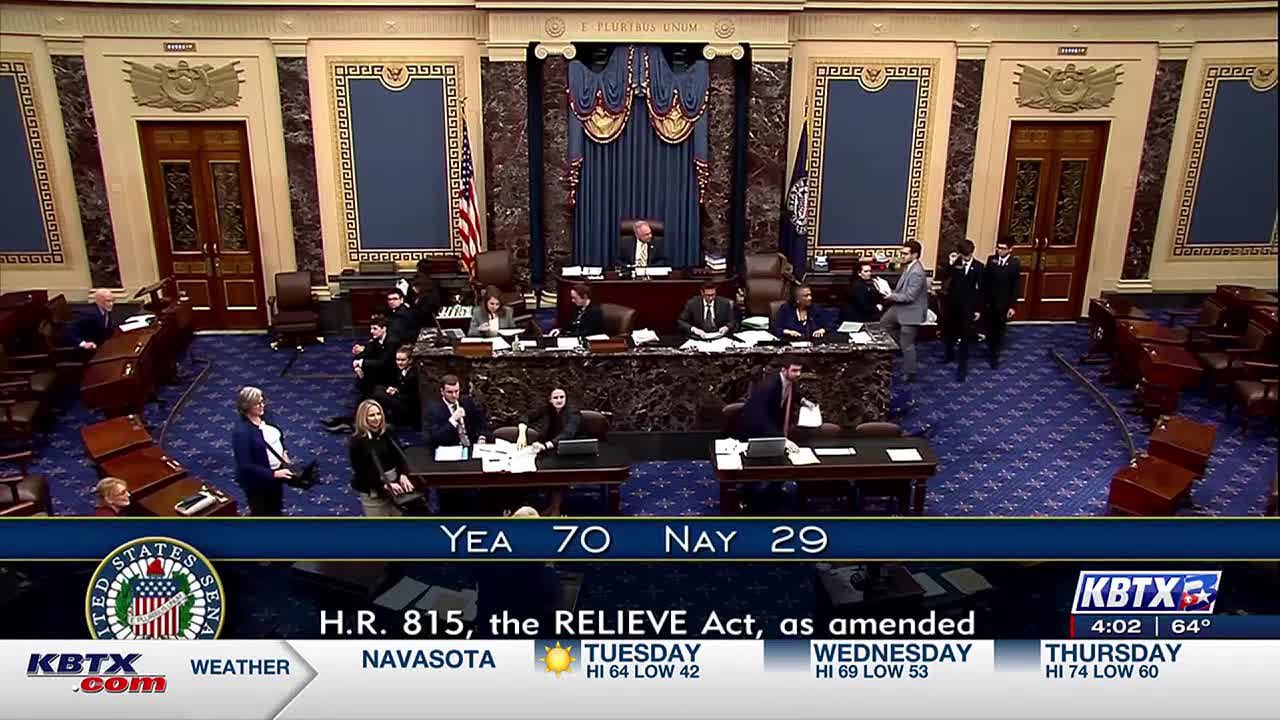Focus at Four: The political implications of foreign aid
BRYAN, Texas (KBTX) – The Senate passed the measure with significant bipartisan support, and with the president’s added pressure for the House’s response, the outcome looks more promising than ever.
This follows almost five months of torturous negotiations over an expansive bill that would have paired foreign aid with an overhaul of border and asylum policies.
Professor Raymond Robertson with the Texas A&M Bush School of Government joined First News at Four on Tuesday to break down how aid can affect U.S. foreign affairs.
Robertson said that aid to places currently in conflict, like Israel and Ukraine, is part of who the U.S. is on a global scale.
“We are the police officers of the world in many ways. Our presence there is absolutely critical to holding back those who would oppose freedom and democracy,” he said.
Yesterday, we reported on President Biden’s private critiques of Netanyahu refusing to de-escalate military tactics in Gaza. But, the funding includes support for Israel. Protests calling for a ceasefire have broken out around the world. Robertson said the U.S. is walking a fine line with the war.
“Hamas is an enemy of the United States as well, they also pose significant threats. But at the same time, because of the humanitarian concerns, the bill that was just passed includes a large amount of money, almost $10 billion, for aid to the Gaza strip,” he said.
The effect that aid has on our posture with other countries that oppose who we fund is called the counterfactual.
“What would happen if we didn’t send aid? This would send, basically, a blank check to Russia and China, and Hamas. Their main opposition would not be supported, and that is something that would threaten freedom not only in those areas, but for us and around the world,” said Robertson.
You can watch the full interview in the video player above.







